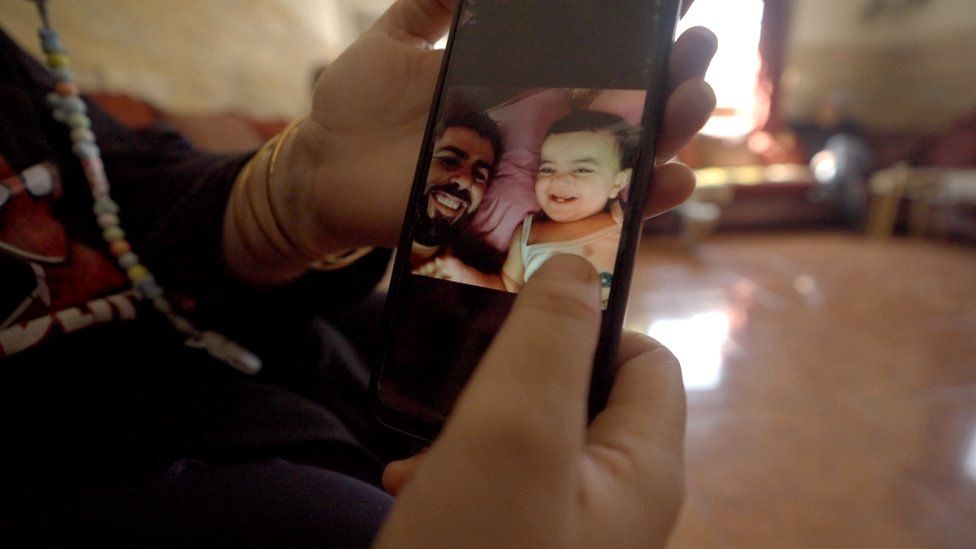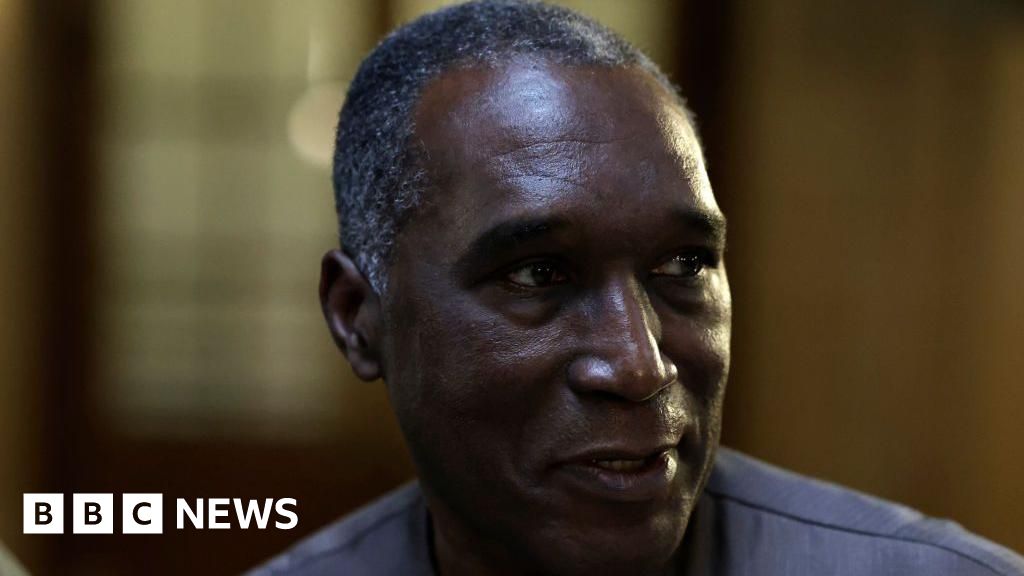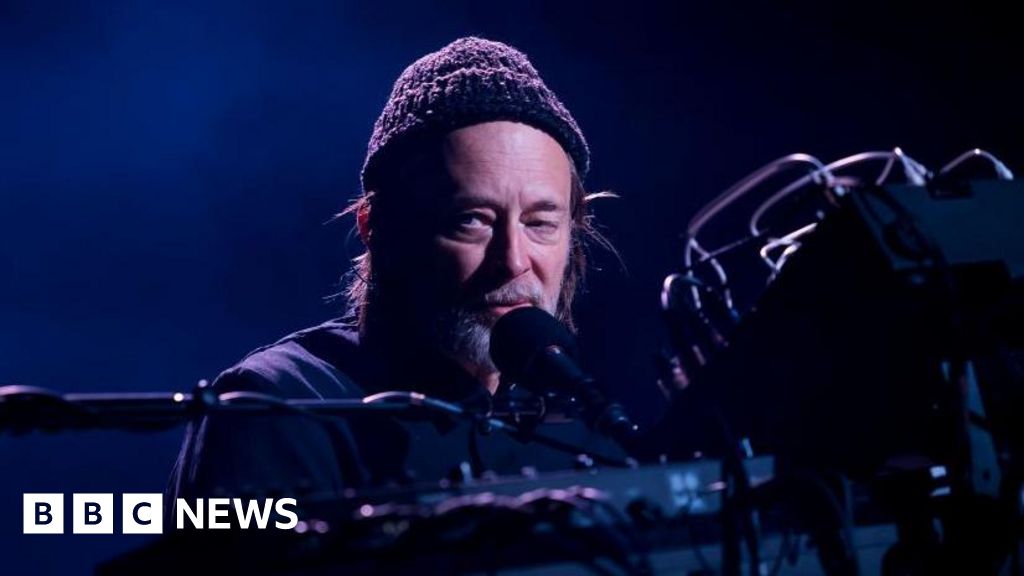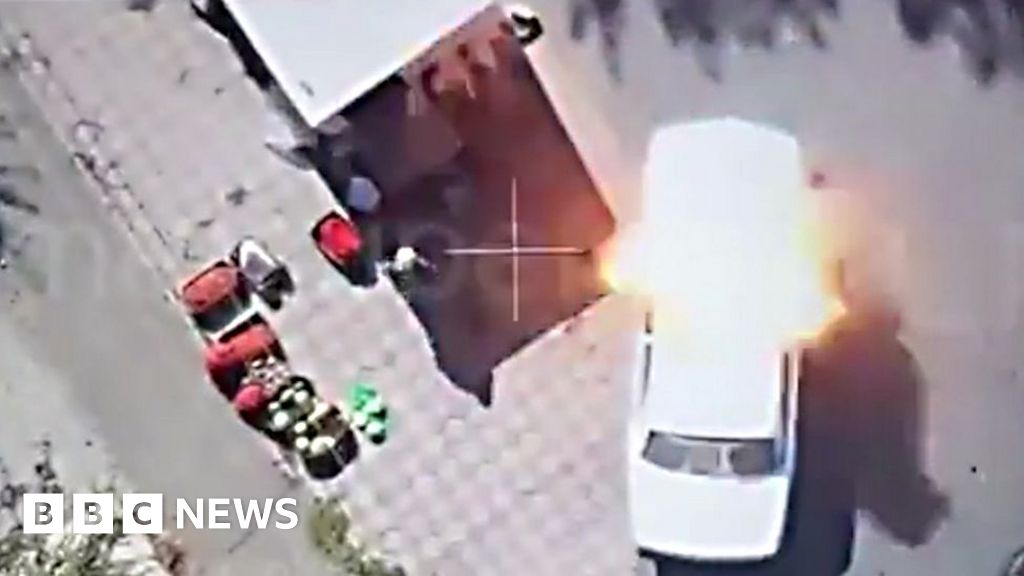ARTICLE AD BOX

Ameed, a 33-year-old electrician, has been in intensive care for almost two weeks after being shot by Israeli soldiers
By Tom Bateman
BBC Middle East correspondent
The sound of a single gunshot echoes around the street as a man in a white t-shirt runs away from where an Israeli military jeep has been sighted.
In that instant, blood is seen spraying above him and he collapses forwards.
Ameed al-Jaghoub, unarmed and apparently rushing to help a wounded man, had been shot in the back of the head during an Israeli raid in the occupied West Bank village of Beita.
Nearly a fortnight on, he remains critically ill in intensive care.
Mobile phone footage of the moment the 33-year-old was hit is among the clearest documentation in recent years of the use of lethal force by Israeli troops against an unarmed Palestinian.
His case is the latest to be highlighted by human rights groups, who say that casualty rates from what they describe as "unjustified" use of force are at their highest in two decades.
It comes with the West Bank engulfed in a crisis of violence involving a rising number of deadly attacks by Palestinians against Israelis, growing mob violence by Israeli settlers, and waves of lethal Israeli military raids into Palestinian cities.
The group Human Rights Watch has called for an international response to Israel's use of lethal force in the West Bank
Amid the clatter and grime of roadside car workshops, while children grapple to race an adult bike downhill, the street in Beita is still stained with blood. The village is depressingly familiar with the West Bank's epidemic of suffering.
Doctors say Mr Jaghoub may not survive. His family is praying for a "miracle" but knows if he lives, he will be severely brain damaged. "This guy was hit to be killed," intensive care specialist Dr Sufwan Fayyad told the BBC.
Troops raided Beita on 21 August to detain a resident. According to locals, the forces believed the man's family could know clues as to the whereabouts of a gunman who days before had killed two Israelis - a father and son - at a carwash in the nearby town of Hawara.
That attack sparked a wave of military detentions and intelligence gathering raids as troops searched for the suspect, who remains at large.
Residents threw stones and broken masonry at armoured troop carriers as they entered. Witnesses told the BBC that Israeli paramilitary border police officers exited a jeep that had stopped at the top of the street where Mr Jaghoub had joined a crowd of young men and teenagers.
As he ran away from the area where the troops were stationed, one shot him in the back of the head, said the witnesses.
In the footage, Mr Jaghoub is seen in the seconds before he is struck, heading towards a group lifting a wounded man onto a stretcher.
Earlier, a member of the police special forces had reportedly approached another resident, Mahmoud Elian, who says the officer told him to "go and tell these children to get away from here because I'm here to kill". He said the officer, who spoke to him in Hebrew, repeated the phrase twice.
Israel's Border Police did not respond to questions from the BBC about the claim.
Asked about Mr Jaghoub's case, the force did not answer questions about specifically why he was shot. In a statement, it said its troops faced a "violent riot" in Beita "that endangered the lives of the security forces present".
It said: "As the riot increased, [so] did the level of response by the security forces. Additionally, the forces responded with .22 ammunition and live fire. Hits were identified."
Graphic footage of the shooting has circulated widely on social media
At the family home, Mr Jaghoub's toddler son Yanal is held by his grandfather. The family worries mostly for the children. Mr Jaghoub is an electrician, who often crossed the military checkpoints into Israel, where the pay can be up to five times that in the West Bank.
"This is a cruel and a cowardly act," Mr Jaghoub's father Ghaleb says. "Because he was on his way to do a humanitarian act. He was not carrying a stone or a weapon or anything."
"His children are young and do not realise what is happening, but they ask about him all the time," he tells the BBC.
His family says they have received calls from human rights groups based in Israel, as well as the Israeli media after footage of the shooting that has been circulated widely on social media. But they doubt it will make any difference.
Despite reviews into similar incidents being announced by Israeli forces, the overwhelming majority of cases do not lead to prosecutions or meaningful accountability.
In Mr Jaghoub's case, the US State Department, which has become unusually outspoken over some Israeli actions in the West Bank, particularly in light of growing settler violence, said it was "alarmed" by the report of "an Israeli shooting an unarmed Palestinian civilian from behind as the latter was walking away from an Israeli position". It called for a thorough investigation and "full accountability".
Mr Jaghoub's brother Said, who has been making daily trips to his bedside, says: "The world will do nothing for us. We always appeal to the international community, but unfortunately the Israeli attacks are increasing."
The West Bank has seen an escalation of violence with deadly attacks by Palestinians against Israelis, Israeli military raids and violence by Israeli settlers
Beita found itself at the heart of the West Bank's escalating violence in May 2021, when an Israeli settler group established the nearby outpost of Evyatar, cutting off the Palestinian village from part of its lands.
The settlers built the outpost in apparent retribution for the murder of Yehuda Guetta, a 19-year-old yeshiva student, who was shot dead by a Palestinian-American who came from a town 20km (12 miles) away from Beita.
All settlements are illegal under international law, although Israel disputes this. But outposts like Evyatar, which often involve taking privately-owned Palestinian land, are also illegal under Israeli law.
In the year after Evyatar's establishment, Israeli forces killed nine Palestinians, eight of them from Beita, during weekly protests against the outpost, according to the Israel-based human rights group B'Tselem.
The village has already "paid a massive price" for the growth of illegal settlement outposts in the Nablus region, says Sarit Michaeli, international advocacy officer at the organisation.
Likening it to the demonstrations around Beita, she puts Mr Jaghoub's shooting down to the use of "open fire regulations" by Israeli forces.
"It's important to stress this is not an isolated incident… We're talking about a broad policy that is the use of lethal force," she says.
"The fact that some people were throwing stones [and] the claim that soldiers or border police officers were involved in some sort of clash with Palestinians doesn't simply allow them the authority to shoot an unarmed person in the head," she said.
Under international law, the use of firearms by security forces against civilians is defined as a measure of last resort and can only take place to stop an "imminent threat of death or serious injury".
Israel routinely rejects the accusations by rights groups, saying its forces operate to protect Israeli civilians and lethal force is necessary against what Prime Minister Benjamin Netanyahu has called a current "terror wave" in the West Bank.
At least 220 Palestinians in the West Bank and Gaza, and 33 Israelis have been killed since the start of this year.

 1 year ago
14
1 year ago
14








 English (US)
English (US)